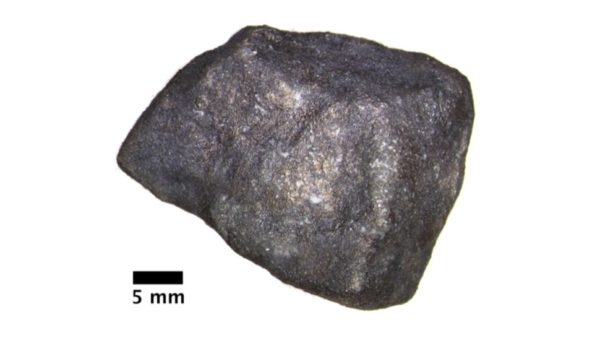
A meteorite that landed on a frozen lake in 2018 contains thousands of organic compounds that formed billions of years ago and could hold clues about the origins of life on Earth.
The meteor entered Earth’s atmosphere on Jan. 16, 2018, after a very long journey through the freezing vacuum of space, lighting up skies over Ontario, Canada, and the midwestern United States. Weather radar tracked the flaming space rock’s descent and breakup, helping meteorite hunters to quickly locate fallen fragments on Strawberry Lake in Hamburg, Michigan.
An international team of researchers then examined a walnut-size piece of the meteorite “while it was still fresh,” scientists reported in a new study. Their analysis revealed more than 2,000 organic molecules dating to when our solar system was young; similar compounds may have seeded the emergence of microbial life on our planet, the study authors reported.


